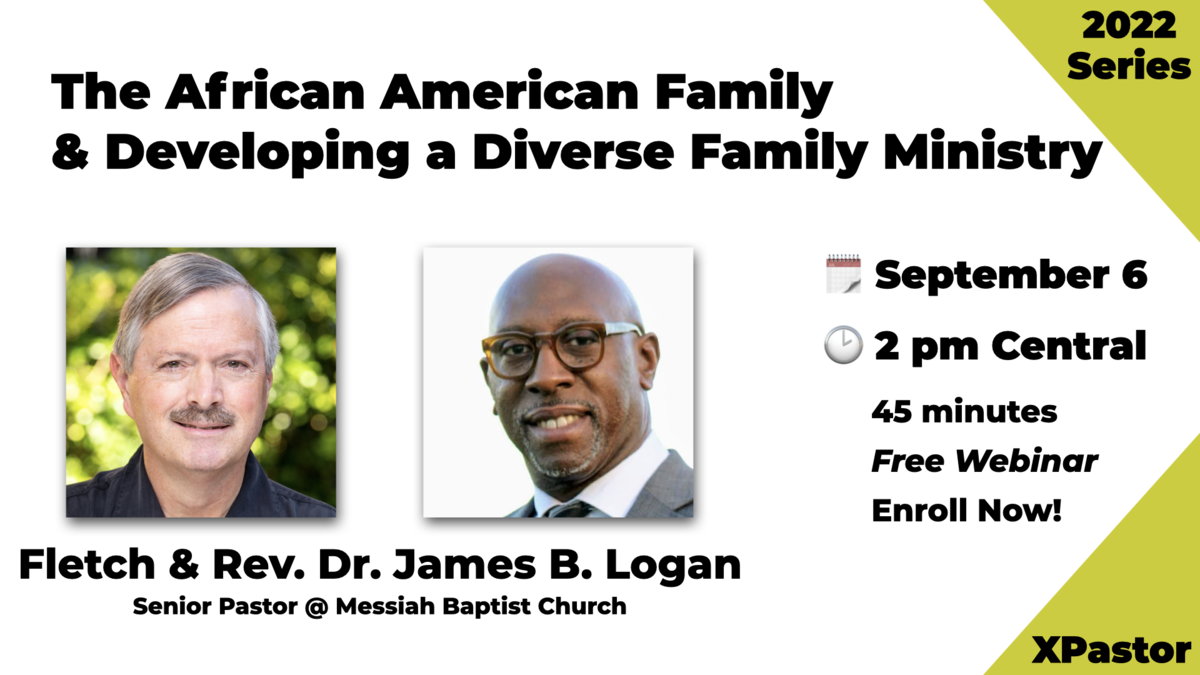XPastor tries to help churches by providing some of the essentials for running a church—items like job descriptions, employment applications, review forms and policies. Below is a Position Paper on Divorce and Remarriage by the Elders of BDF Church in October, 2000.
The purpose of this paper is to focus on those issues and questions about divorce and remarriage that are addressed in the Bible. There are many issues and questions that the Bible does not directly address. In those cases we are to look to godly counsel and the leading of the Holy Spirit for wisdom.
The following is a summary of the teachings we find in the Bible:
- Staying married is clearly a major priority to the Lord. He hates divorce because he hates the unfaithfulness, bitterness and incredible pain that people suffer which results in divorce.
- Divorce is allowed for Christians if their mate commits adultery. It is also allowed if an unbelieving mate abandons or divorces the believer.
- Believers who have divorced for reasons stated in number two may remarry as the Lord leads, but only to another believer.
- Christians who have filed for divorce for other reasons, which are not recognized in the New Testament, are to seek reconciliation or stay single.
- The timing of new relationships after a divorce is not addressed in the Bible. So godly counsel should be sought and each person must be led by the Lord individually.
Old Testament Laws
Priests could not marry a divorced woman or a widow. The issue is for priests to live the highest example of God’s perfection in marriage. Perfection was two people, never married, marrying one time forever. Adam and Eve were the first married couple and it was intended that they live forever. Thus, even a widowed woman is not God’s highest plan. Death came because of sin, and sin came because of man’s rebellion to God. Therefore, even a widow was not good enough for God’s priest.
He must not marry a widow, a divorced woman, or a woman defiled by prostitution, but only a virgin from his own people … (Lev. 21:14)
Question 1: Should pastors obey this law today? Should they stay single even if widowed or never marry a widow or divorced person because they are spiritual leaders like the priests?
Answer 1: No. Pastors are not Old Testament priests. The priesthood of all believers is the New Testament teaching. Pastors are spiritual overseers and teachers in churches. They are not a special priesthood. To apply this passage to pastors would mean that all the laws in Leviticus would need to be applied including circumcision, animal sacrifices, etc. The fact that Christians are not under the Jewish law is clearly taught in the New Testament. Spiritual leaders in the church are to uphold the highest standards as defined by the scriptures. This is not one of those standards.
Question 2: Did God allow divorce in the Old Testament?
Answer 2: Yes.
If a man marries a woman who becomes displeasing to him because he finds something indecent about her, and he writes her a certificate of divorce, gives it to her and sends her from his house … (Deut. 24:1)
Question 3: What was the “indecent” thing that would justify a divorce?
Answer 3: Jews have debated that for centuries, including in Jesus’ time. Jesus answered this question for us. We will see His answer when we move to the New Testament teachings.
Question 4: How was a priest’s daughter treated if she was divorced?
Answer 4: A priest’s daughter could get a divorce and receive help from the father and eat the sacred offerings. No judgment from God is indicated here because of divorce. She is treated the same as a widow. This indicates the acceptance of divorce in the law, even for a priest’s child.
But if a priest’s daughter becomes a widow or is divorced, yet has no children, and she returns to live in her father’s house as in her youth, she may eat of her father’s food. No unauthorized person, however, may eat any of it. (Lev. 22:13)
Question 5: Was there any situation where divorce was never an option?
Answer 5: Yes. A man who tries to slander his wife by claiming his wife was not a virgin when they married cannot ever divorce the woman. Here the total denial of the divorce option is a protection and security for the woman. In those days, a woman either lived in her father’s house, her husband’s house, or was on the streets. The society had little use for a single woman on her own. Poverty or prostitution were the only options. God protected the woman so she could never be turned out on the streets.
… and the elders shall take the man and punish him. They shall fine him a hundred shekels of silver and give them to the girl’s father, because this man has given an Israelite virgin a bad name. She shall continue to be his wife; he must not divorce her as long as he lives. (Deut. 22:18)
A second example of the no-divorce law is if a man rapes a single woman not otherwise pledged to be married. No divorce is possible in that relationship.
If a man happens to meet a virgin who is not pledged to be married and rapes her and they are discovered, he shall pay the girl’s father fifty shekels of silver. He must marry the girl, for he has violated her. He can never divorce her as long as he lives. (Deut. 22:28)
Question 6: Is remarriage an option in the Old Testament law after a divorce?
Answer 6: Yes. Remarriage is almost always an option after divorce with one exception. A man cannot divorce one wife, marry a second, then remarry the first if the second dies or he divorces her. Otherwise, remarriage is always included in the options for someone who has been divorced in Old Testament days.
… and her second husband dislikes her and writes her a certificate of divorce, gives it to her and sends her from his house, or if he dies … (Deut. 24:3)
… then her first husband, who divorced her, is not allowed to marry her again after she has been defiled. That would be detestable in the eyes of the LORD. Do not bring sin upon the land the LORD your God is giving you as an inheritance. (Deut. 24:4)
Question 7: What does God really think about divorce?
Answer 7: He hates it.
‘I hate divorce,’ says the LORD God of Israel, ‘and I hate a man’s covering himself with violence as well as with his garment,’ says the LORD Almighty. So guard yourself in your spirit, and do not break faith. (Mal. 2:16)
Question 8: If God hates divorce, why does He allow for it in the law?
Answer 8: Jesus answered that question.
New Testament Teachings
Notice it is a hardness of heart, meaning bitterness and lack of repentance from sinful behaviors, that compelled Moses to permit divorce. It was not a mandate from God for people to divorce.
It has been said, ‘Anyone who divorces his wife must give her a certificate of divorce.’ (Matt. 5:31)
But I tell you that anyone who divorces his wife, except for marital unfaithfulness, causes her to become an adulteress, and anyone who marries the divorced woman commits adultery. (Matt. 5:32)
Some Pharisees came to him to test him. They asked, ‘Is it lawful for a man to divorce his wife for any and every reason?’ (Matt. 19:3)
Jesus replied, ‘Moses permitted you to divorce your wives because your hearts were hard. But it was not this way from the beginning.’ (Matt. 19:8)
I tell you that anyone who divorces his wife, except for marital unfaithfulness, and marries another woman commits adultery. (Matt. 19:9)
Question 9: Does the except for marital unfaithfulness apply as biblical grounds for divorce and also allow for remarriage without it being adultery?
Answer 9: Yes. The exception clause applies to both parts of the sentence in Matthew 19:9. This is also supported by the Old Testament law, which with only one exception as stated above, always allowed for remarriage after a divorce.
Jesus says that divorce must be regulated carefully and only sexual unfaithfulness is grounds for divorce. He interpreted what Moses wrote very strictly in contrast to some who taught that if the husband was dissatisfied with the wife for any reason he could divorce her.
Question 10: Why did Mark and Luke not include the “exception clause” in their accounts?
Answer 10: No one can say for certain. It is not uncommon to read parallel accounts in the four gospels of Matthew, Mark, Luke and John and find some differences among them. Since God does not contradict Himself, we must always interpret the Bible by harmonizing the accounts. This is best done by recognizing that the sum total of all the words attributed to Jesus in parallel accounts by the various writers present a more complete picture of what Jesus said. In this case, Matthew was more detailed in his account than the other writers.
Some Pharisees came and tested him by asking, ‘Is it lawful for a man to divorce his wife?”‘(Mark 10:2)
They said, ‘Moses permitted a man to write a certificate of divorce and send her away.’ (Mark 10:4)
He answered, ‘Anyone who divorces his wife and marries another woman commits adultery against her.’ (Mark 10:11)
‘And if she divorces her husband and marries another man, she commits adultery.’ (Mark 10:12)
‘Anyone who divorces his wife and marries another woman commits adultery, and the man who marries a divorced woman commits adultery.’ (Luke 16:18)
Now we will look at additional considerations about divorce and remarriage from the writings of Paul as he directs the churches about issues not addressed specifically by Jesus.
Question 11: In general, what should a believing husband and wife do about their marriage if they are having conflicts?
Answer 11: Try not to divorce. Paul reminds them that Jesus said stay married. However, if divorce is chosen, then based on what Jesus said, the parties should remain single or be reconciled. This instruction assumes that adultery is not involved since Jesus said that adultery was a basis for divorce and remarriage.
To the married I give this command (not I, but the Lord): A wife must not separate from her husband. But if she does, she must remain unmarried or else be reconciled to her husband. And a husband must not divorce his wife. (1 Cor. 7:10-11)
Question 12: What if one mate is a believer and the other will not believe? Should the believer stay in the marriage?
Answer 12: Yes. The believer’s relationship with Christ sets apart the whole family unto the Lord. This does not save the unbelieving mate but brings special blessings from the Lord on the household, including the children.
To the rest I say this (I, not the Lord): If any brother has a wife who is not a believer and she is willing to live with him, he must not divorce her. And if a woman has a husband who is not a believer and he is willing to live with her, she must not divorce him. For the unbelieving husband has been sanctified through his wife, and the unbelieving wife has been sanctified through her believing husband. Otherwise your children would be unclean, but as it is, they are holy. (1 Cor. 7:12-14)
Question 13: What if the unbelieving mate abandons or no longer wants the marriage?
Answer 13: The believing mate is to let the other go and not try to hang onto the marriage. The believer is not bound in this circumstance to maintain the marriage or seek reconciliation. Notice that living in peace is a priority.
But if the unbeliever leaves, let him do so. A believing man or woman is not bound in such circumstances; God has called us to live in peace. How do you know, wife, whether you will save your husband? Or, how do you know, husband, whether you will save your wife? (1 Cor. 7:15-16)
Question 14: Does not being “bound” in verse 15 include the idea that the believer could remarry a Christian if so desired?
Answer 14: Yes. Paul uses the same idea of being bound and not bound in a marriage in Romans 7. He emphasizes that in the death of a mate, the widow is not “bound” to the law of marriage. And if they remarry it is not adultery. Thus, in 1 Corinthians 7, to not be bound is to be released from the marriage completely. This would include the freedom to remarry, but only another believer.
For example, by law a married woman is bound to her husband as long as he is alive, but if her husband dies, she is released from the law of marriage. So then, if she marries another man while her husband is still alive, she is called an adulteress. But if her husband dies, she is released from that law and is not an adulteress, even though she marries another man. (Rom. 7:2-3)
Question 15: Does the Bible indicate any amount of time that should pass before a divorced person enters a new relationship or remarries?
Answer 15: No. There is no biblical basis for establishing timelines for new relationships. However, the Bible is full of instructions to seek counsel from godly people in important matters. So it would be very important for the divorced to seek godly counsel before, during and after their divorce.
Final Thought
As stated at the beginning of this paper, there are many unanswered questions and situations regarding divorce and remarriage that have not been addressed in the scriptures. Our prayer is that what has been presented will be of help to clarify what the Bible does teach concerning divorce and remarriage. Much is left to the spiritual leaders of churches and to individual believers. May God grant us wisdom as we obey what is clear and seek Him where it is not clear.
View the original PDF: Divorce Remarriage











